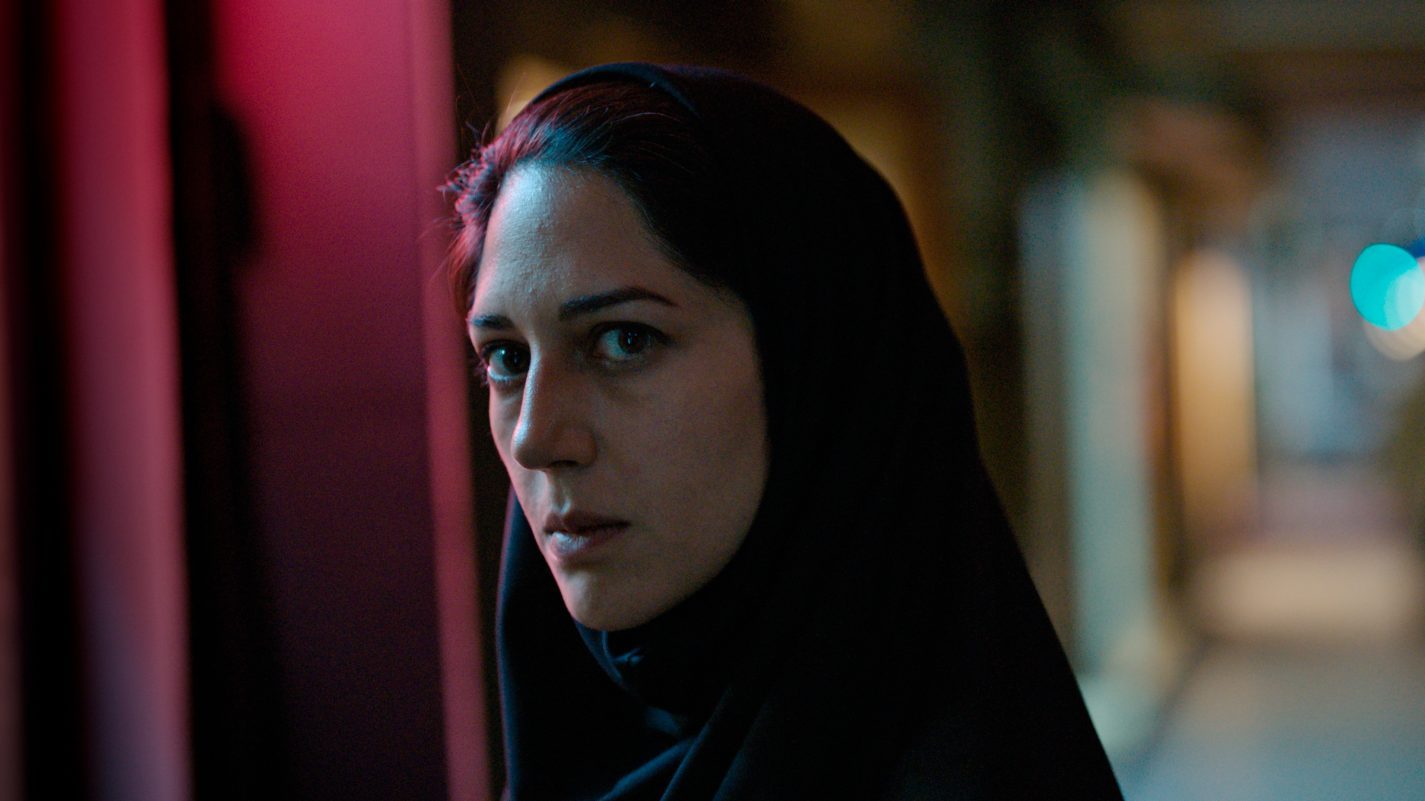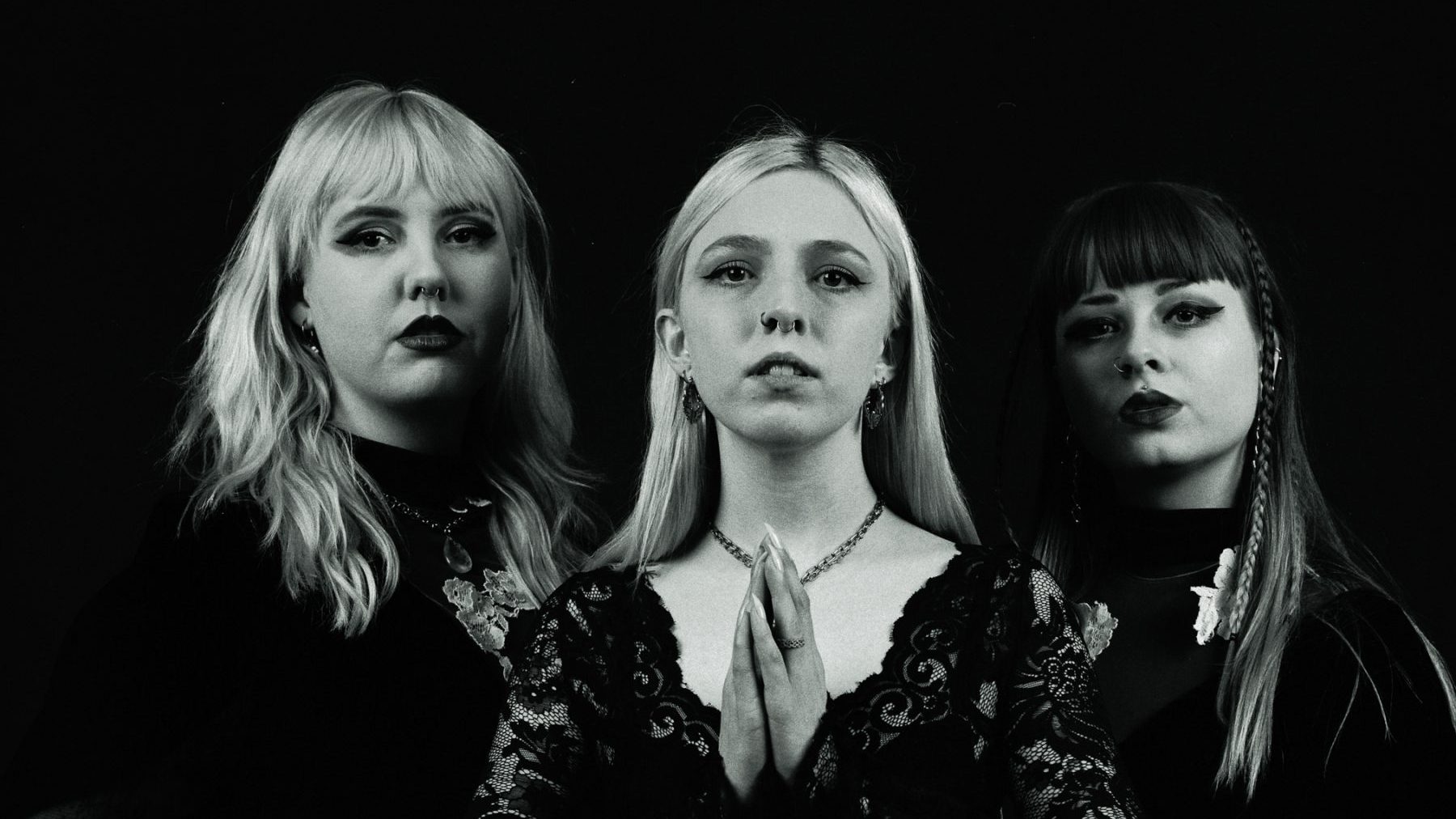There can’t be many women who’ve won the Best Actress award at Cannes and taken the hallowed stage in the Palais with the threat of 100 lashes hanging over them should they ever return home.
“To be honest,” admits exiled Iranian star Zar Amir Ebrahimi to me, “since that sentence was issued, I’m probably in for several hundred more lashes by now.”
She sort of laughs. But it also looks like she’s crying.
Zar won the prestigious Cannes award for her blistering performance in the film Holy Spider. She plays a journalist from Tehran sent to investigate a spate of prostitute killings in the holy town of Mashhad – although the reporter character, Rahimi, is fictional, the film is based on the real-life case of serial killer Saeed Hanaei, who murdered 16 sex workers in Mashhad in 2000-2001 in a case that obsessed the nation.
It’s a remarkable, clammy, shocking movie, directed by Ali Abbasi, also an exiled Iranian now living in Denmark, the country that put Holy Spider forward for its Oscar nomination in the International Film category this year. It made the long list but, sadly, did not reach the final five to appear in Hollywood this weekend. It must have come close but is probably too much of a genre thriller and too violent for voters in that category.
“Iran would not be proud of this film if it was at the Oscars,” says Zar. “They would say nothing, even if it won! They were furious when I won at Cannes and if I went back to Iran I would be arrested at the airport and thrown in jail. For the director, Ali, it is probably worse. His life would be at risk for having made this movie.”
Now infamous, Zar herself was quite famous in Tehran in the early 2000s. Her career was on the rise as an actress, with several plays and movies on her CV and, known as Zahra Amir Ebrahimi, she had a leading role in a very successful TV show called Nargess, set in the Tehran bazaar.
But then she was accused of featuring in a leaked 20-minute sex tape, becoming the subject of huge national scandal and trial – for a person found guilty of producing sexually explicit material, even for private consumption, the offence is punishable by death. It is a needless irony to add that, of course, the sex tape is one of the most watched and most pirated films ever in Iran.
Having undergone hours of interrogation and denied the woman in the video was her, she was never formally charged but was banned from appearing in film or television for 10 years. In 2008, before she could be put on trial, Zar fled the country where she was born in 1981, and went to Paris to start her life and career again. She has lived there, in exile, ever since.
“I have hidden my name and changed it,” she says. “I took jobs in theatre and working on films but I didn’t want my real name credited anywhere. I did voice parts and animation where you couldn’t see it was me. I did radio work. I was hiding.”
We don’t have time to go into the details of the escape from Tehran but, I say, it must have been as tense as the plight of Rahimi, the journalist she plays in Holy Spider. “Let’s say I understood this character very well,” she says. Set in the shadows and back streets of Mashhad, Rahimi eventually uses herself as bait for the brutal murderer, played with shocking banality by Mehdi Bajestani, who scuds about the night on his motorbike, picking up prostitutes and strangling them back at his flat whenever his wife and kid are staying at her mother’s.
Although praised by many critics, the movie was also accused of violence and misogyny and of brutal attitudes to its female characters, most of them sex workers and some of them drug addicts. The real horror is that most of Mashhad, in the movie, seems to be giving the killer their support in his crusade to “clean up the streets”. The sense of fear for women in Abbasi’s film is painfully palpable.
“But if you lived in Iran, grew up there as a woman, as I did, this is nothing new,” says Zar. “I had this fear every day, in the street, the sense that someone would harass you, touch you, even in a taxi, you could be attacked, just for being a woman.”
Attitudes to the film, however, have drastically changed since its Cannes debut back in May 2022. In September, news broke worldwide of the Iranian morality police and their arrest of 22-year-old Mahsa Amini who died after alleged beatings by the police for her infringement of the mandatory dress code and hijab law.
It led to women demonstrating in the streets, cutting their hair, throwing off the hijab, a controversy that filtered into the Fifa World Cup when the Iran men’s football team refused to sing their national anthem in their opening match, against England. Mahsa Amini’s death sparked a movement of protest that was clamped down on hard by the Iran government who, according to estimates by the New York Times, have had 19,000 people arrested and nearly 100 sentenced to death.
“People thought we were exaggerating the violence in Holy Spider but now they can see we are not,” says Zar. “The violence is there on the street, it is part of society. This is a society where people watch public executions – can you imagine what that does to the people of a nation? This is what the film shows.”
In one of the government’s most high-profile detentions, actress Taraneh Alidoosti was arrested in December over posts expressing support for anti-government protests; her Instagram and Twitter were subsequently deleted and suspended. Iranian state news media claims Alidoosti was arrested for “unsubstantiated comments about recent events” and “the publication of provocative material.” After three weeks of imprisonment, Alidoosti was released on bail.
But at last month’s Berlin film festival, another Iranian actress exiled in Paris, Golshifteh Farahani (best-known for her role opposite Adam Driver in Jim Jarmusch’s Paterson) was a member of the jury and used the opening-night ceremony and red carpet to denounce the Iranian regime.
“This regime lies; this regime executes; this regime puts innocent people in prison. The prisons of Iran are full of innocent people,” she said. Farahani was then brought to tears by a standing ovation from the audience. “In a country that is a dictatorship like Iran, art is not only an intellectual, philosophical thing – it’s essential, it’s like oxygen. Your existence by being an artist is put in danger.”

Zar appeared in Berlin, too, as the narrator of an Iranian documentary called Seven Winters in Tehran, detailing the public hanging of a young Iranian woman called Reyhaneh Jabbarri, a story told through her letters and text messages to the family.
Seven Winters in Tehran retraces the life of Jabbarri, whose life was changed for ever when she fatally stabbed the man who was trying to rape her. Despite evidence of self-defence, she was sentenced to death and was hanged in 2014.
The film was made in partnership with her family, who are now living in Germany; her mother, Shole, is now an activist against the death penalty. Ebrahimi, who won the Best Actress prize at Cannes 2022 for Holy Spider, provides Reyhaneh Jabbarri’s voice in the film.
For Zar, accusations of Holy Spider’s misogyny are wide of the mark. I’m not sure it’s for me, a male writer, to judge best: if women are calling out perceived misogyny, one should listen, but I certainly agree with Zar in this instance – I found the film’s portrayal of violence against women firmly and obviously in the service of highlighting the evils of a society and its appalling men.
“People don’t understand,” she tells me, her voice cracking with passion. “This film actually gives Iranian women back their bodies. No film in Iranian cinema would ever show sex workers, give them lines, make them human, take pity on them. It would never show that a woman does have a sex life.”
Equally powerful, she says, is the film’s trial and climax, which could be seen as giving the killer his side of the story although, again, I hardly feel that’s true, and it’s surely only to show him and the society in the worst light.
“We wanted to show people what life is like in Iran, that trials and executions and hangings are every day, this is the culture,” she persists. “The world must understand what this is like, for a society to live like this.
A serial killer on the streets? This is really the symbol of the government, of the official mindset, how people are brainwashed to think this is normal behaviour.”
It’s amazing to see and hear Zar so passionate in her defence of her director and her role, especially when you think she almost didn’t get the part, which eventually won her Best Actress at the world’s most famous film festival. She was only supposed to work as a casting director on the film. “I was just concerned with getting the right women for the parts, to make it feel authentic for our shoot in Jordan, to be sure it was as realistic as possible,” she recalls.
However, the dangers of making the movie became apparent to several actors who feared for their reputations and, indeed, their lives back in Iran if they appeared in it. The lead actress became scared a week before filming commenced and fled, Zar shouting at her in fury as the entire production would have to halt. Apparently, it was in this moment that director Abbasi discovered his new heroine. “He’d never seen me so fiery, so steely,” says Zar. “He thought I was too feminine, too soft for the part of this journalist but then he saw me fighting. We did an audition and I wasn’t even sure myself, but the scene I played connected me immediately to the part.”
The scene in question is a key moment in the movie, when journalist Rahimi allows a local police officer into her hotel room for what she thinks will be a work meeting to get info on the killer, but which he turns into a rape attempt. “Oh I knew that feeling,” she says. “I had it so many times in my interrogations. I knew this guy, I knew this world but it was triggering for me, such a flashback – I know what it is to be judged for sex and have your life threatened for sex.”
She is brilliant in Holy Spider. Steely yet frightened, professional yet reckless, brave but in massive danger, and the film’s fetid atmosphere gets into your bones. Abbasi is a talented filmmaker. His last movie, Border, was completely different: a fantastical outsider romance based around two Swedish trolls. One of them works as a customs officer whose olfactory powers make her impossible to smuggle anything past and eventually the two smell each other out and find weird love. It won awards for its makeup as well as the Un Certain Regard prize at Cannes in 2018.
It’s hard to see Holy Spider as any kind of follow-up to Border, yet it’s clear this director has sympathies with outsiders, in this case the shunned and abused and murdered sex workers, women who have never been given screen time in Iranian films. “I’m so proud of the women who protest on the streets of Iran to fight for their rights. We need to tell stories of Iranian women’s journeys and I think I am doing that, even if I have to do it from the outside.”
She adds, somewhat surprisingly, that she still feels very close to Iran. “When you are exiled, you feel it more and I am so proud to be part of a generation of Iranian women, in Iran and outside of it, who are protesting. You know, when I win an award and I make a speech against the government on the world stage, they really don’t like it. Nobody does. It makes people cry. It shames them. But I have to do this, I’m sorry if it upsets people.
“My heart was broken when I left Iran but I will always be proud of my country. My parents are there but I know they are very supportive. My parents know what it meant to me to win at Cannes.”
And as if to put another dampener on proceedings, Zar Amir Ebrahimi stops talking for a moment and thinks of her homeland. I can see her eyes briefly flicker back to it, to home, and, her voice straining, she adds: “But I don’t know if I will ever see them again.”
Holy Spider is now available to stream on MUBI
THE TNE FILM CLUB
25. WINNERS, directed by Hassan Nazer (2022)
Showing the charming side of Iranian cinema, this delightful film,
currently out in cinemas, is all about a lost Oscar statuette. The award in question, though fictional, can probably be read as the one belonging to Iranian filmmaker Asghar Farhadi, who won the Foreign Film Oscar for The Salesman in 2017 but didn’t go to Hollywood to accept it in protest
at president Trump’s travel ban.
On its journey to Iran, the statuette somehow ends up on a rubbish tip, where it is discovered by the children who earn a living scavenging for plastic and metals there. It’s written and directed by Hassan Nazer, an Iranian who now lives in Aberdeen where he runs a Mediterranean restaurant. Made entirely in Farsi, it was the UK’s entry for the International Film category at this year’s Oscars but didn’t make the nominations list. But, as the film so beautifully shows, what’s the point of awards anyway?




